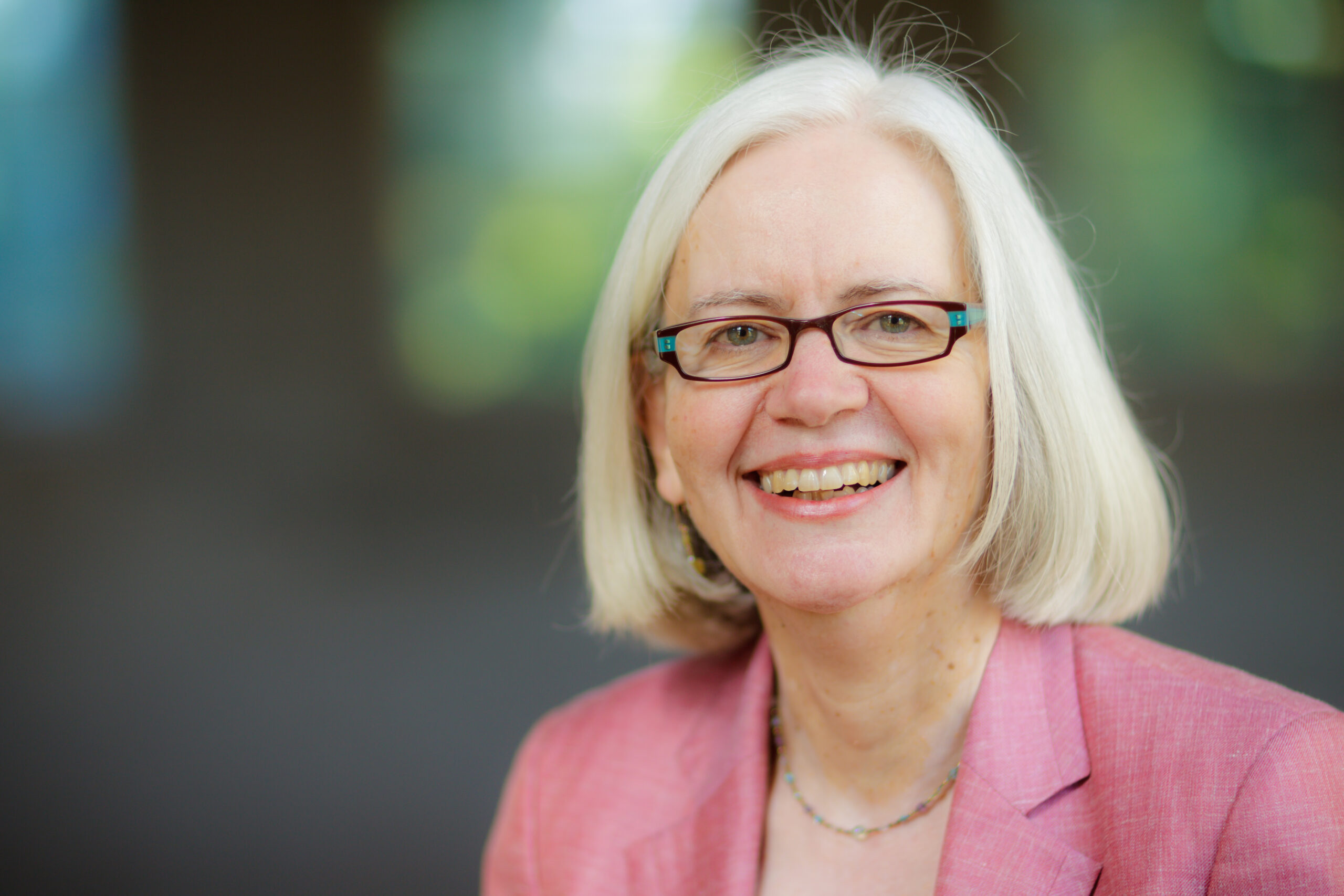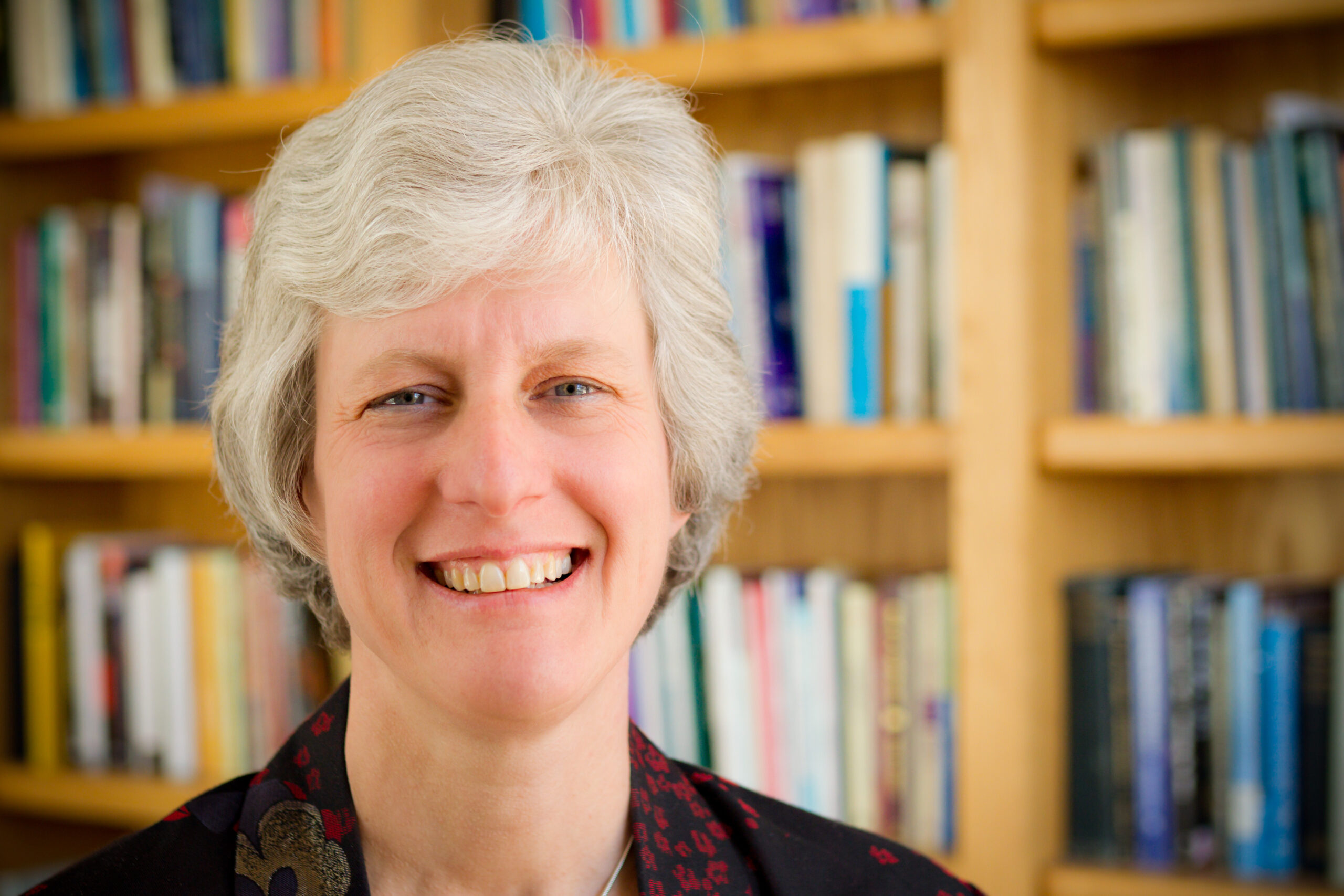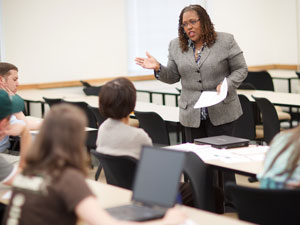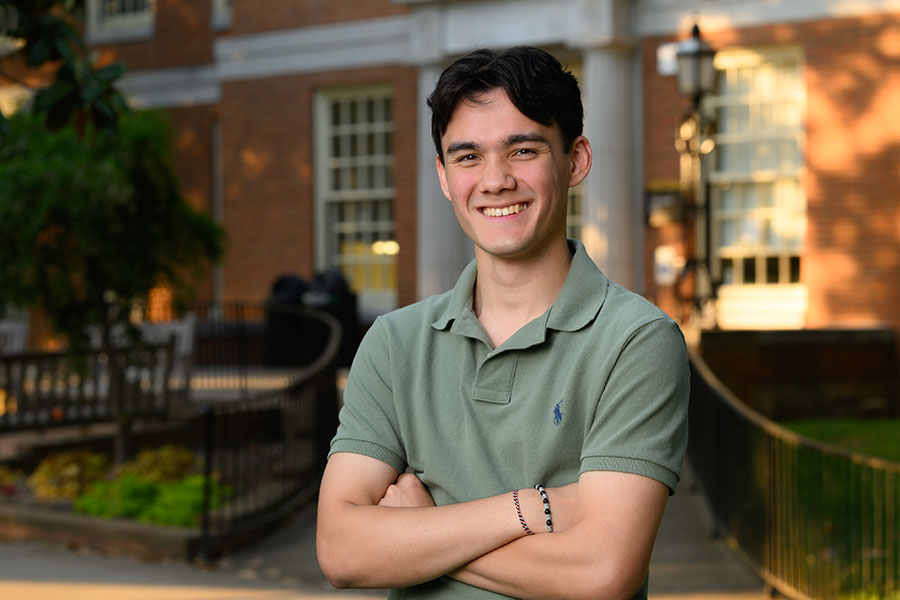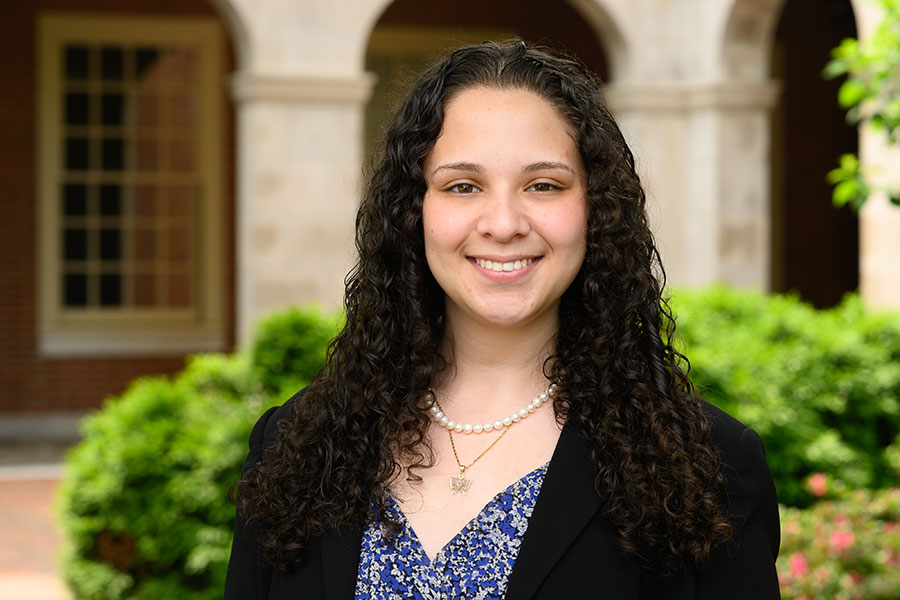Gifts for teaching, preaching and leading
With nearly $1 million from three new grants, the Wake Forest University School of Divinity will create a state-of-the-art teaching chapel, address economic issues facing future ministers and position early career pastors to be leaders in their wider communities.
These gifts bring the total amount raised for the School of Divinity through Wake Will: The Campaign for Wake Forest to more than $13 million, demonstrating significant momentum toward becoming a model for 21st-century theological education.
Among the most recent gifts, a $200,000 grant from the Arthur Vining Davis Foundation will support the renewal of Davis Chapel. Additionally, the Lilly Endowment has awarded two grants: $250,000 to fund a “Financial Well-Being for Pastoral Leaders” initiative and $500,000 to support “Early Career Pastoral Leadership.”
“This funding makes a lot of things possible,” said Gail R. O’Day, dean of the School of Divinity. “All three grants are tied to enhancing our core mission: preparing religious leaders to take their place alongside other public leaders to be agents of justice, reconciliation and compassion in churches and communities.”
Converting Davis Chapel to a ‘teaching’ chapel
Built nearly 60 years ago, the Paul Price Davis Chapel was originally designed as a mediation and prayer chapel. The space seats about 100 people and twice-weekly 11 a.m. divinity school chapel services are held here, as well as religious services sponsored by the Office of University Chaplain.
It is also the main place for School of Divinity classes in preaching and worship.
“Refreshing this space will create a more realistic learning lab for worship,” said Jill Crainshaw, professor of worship and liturgical theology. “A more flexible and education-friendly worship space will enable us to more fully reflect and celebrate the richness of the worship traditions our students and faculty represent.”
The new design includes flexible seating, new lighting and acoustics, and new audio/visual systems, while enhancing the intimacy that makes Davis Chapel such a distinctive place on campus.
“These components will create a space for teaching about preaching, worship and liturgy that is consistent with the high caliber of the School of Divinity faculty,” O’Day said.
A renovated Davis Chapel will open the way to prepare divinity school students more effectively and creatively to lead public worship, while also providing a more flexible venue for other services and events on campus.
Financial wellbeing of ministers
Personal financial pressures can limit the ability of divinity school graduates to pursue the full range of ministry jobs because the salaries are too low to make debt repayment a realistic option. And financial pressures also have a negative impact on the congregations to which they are called.
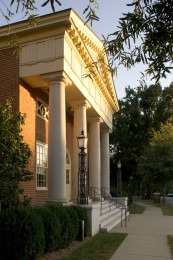 The School of Divinity is one of 67 theological schools across the country to receive funding from the Lilly Endowment Inc. to address these issues.
The School of Divinity is one of 67 theological schools across the country to receive funding from the Lilly Endowment Inc. to address these issues.
“We want to prepare students with the knowledge and skills to promote congregational health and to enable them to engage in theological, ethical and spiritual perspectives that bring today’s economic challenges into conversation with the distinctive traditions and practices of the Christian faith,” O’Day said. “The program will form, educate and financially support ministry students who will then enter their first jobs with greater confidence about their abilities to manage their own finances and to cultivate congregational financial well-being.”
Wake Forest will use its funding to provide:
- Education: Enhancing the School of Divinity’s curriculum with new courses focused on financial literacy and management.
- Formation: Coaching to provide individual financial counseling, establish student-peer mentor leadership, and develop a Web portal with financial assessment, management and educational resources.
- Research: Expanding research on data about students’ circumstances and economic situations.
- Integration: Creating additional paid summer internships for third-year divinity students.
Each year, divinity school students participate in a variety of internships that are meaningful, valuable and formative experiences. “The most important thing I’ve learned is that good ministers are able to put themselves in someone else’s shoes,” Master of Divinity student Jessica Place said. “I’ve had to learn to think about what people want to learn, not what I want to teach; or about what the church needs to hear, not what I want to preach about.”
The new grant will enable the School to create meaningful paid summer internships for students, which will help students earn money and gain professional ministerial experience at the same time. In partnership with funds raised from other donors, the goal is to make paid summer internships available to every divinity student.
Outreach: positioning pastors as community leaders
Clergy are uniquely positioned to make substantive contributions to the well-being of their local communities, especially when they work in partnership with business and other civic leaders.
Through a new leadership development program, “Clergy Making a Place: Early Career Pastors as Generative Community Leaders,” the School of Divinity will bring clergy leaders who serve in areas of North Carolina and Virginia together with outstanding business and civic leaders to learn about the difficult issues facing their communities. Targeted issues for the program include health care, poverty and economic justice, hunger and food access, immigration and racial justice, and regional economic renewal.
“We hope that this program will help early career clergy more intently embrace their identity as church and community leaders,” said Veronice Miles, associate teaching professor of preaching and religious education and director of the new initiative. “Our project goal is to offer early career clergy and civic and business leaders opportunities to learn from each other’s strengths and capacities so that together they can more effectively engage the particular social and economic challenges of the communities they serve.”
The School of Divinity will begin accepting nominations and applications for this cohort-based program in early spring 2014, and is one of 12 organizations nationwide to receive such funding from the Lilly Endowment Inc. for a program of this type of sustained leadership education.
Categories: Transformative Giving, University Announcements
Media Contact
Wake Forest News
media@wfu.edu
336.758.5237

